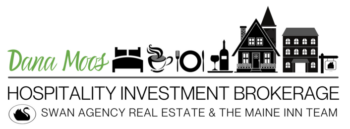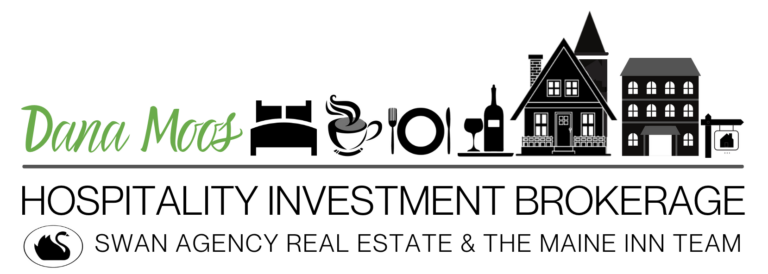Would you go to a cardiologist if you’re having problems with a swollen ankle?
Or take your watch to be repaired by a seamstress?
Then why would you go to a lender who doesn’t deal in the hospitality industry?
A little dramatic, yeah, but you get my point!
There are many reasons to speak with local lenders when considering your lodging purchase but here are five pretty strong ones:
- THEY KNOW THE INDUSTRY – One of the most important is that a lender with a reasonable hospitality loan portfolio knows the tourism industry (and the local tourism) and associated lending risk. They understand this “lifestyle job” and that depending on the size of the property, it may not provide a big paycheck in the end. But it does provide a nice lifestyle and many of the innkeeper’s living expenses are passed through on the income taxes as a certain amount is perfectly acceptable to the IRS.
- TAX RETURNS – In that same regard, these lenders know how to abstract a lodging property’s tax return. They understand what personal expenses might be typical for an innkeeper to pass through to the corporation. This is not being less than honest to the IRS, rather an understanding that a portion of your mortgage, utilities, food, etc are being paid by the corporation but you may not be taking a large salary either. If you had a home, a job offsite, you’d get a paycheck, pay your mortgage, utilities, food, etc. from your income. With a hospitality property, a certain percentage of the business is being used by you as your home and living. This is taken into account when doing your income taxes and is understood by both lenders and appraisers well versed in hospitality.
- SEASONAL PAYMENTS – in some seasonal tourist locations, lenders understand the short window innkeepers have to make their money, often May through October. Local lenders understand this and some offer seasonal mortgage payments, where the annual mortgage is made in 4 installments, for example, paid in July, August, September and October, when the income is the strongest. Not only does this alleviate any possible concern on the lender’s part, but helps some innkeepers who prefer not to budget for monthly payments either when they’re closed or when business is much slower. This also helps buyers who have missed getting into the business before the busy season but want to close in the off season – ask the lender about seasonal payments. They might be willing to defer your first mortgage payment until the busy season starts. Lenders who aren’t in hospitality won’t usually play this game.
- THEY GET TO KNOW YOU – working with local lenders who know the community, know the tourism and get to know you and how you’re handling your business are more willing to make things work for you down the road (if you need a loan, equity line, future purchase, etc). Sometimes when I refer clients to a couple of my local lenders (with whom I did business), my clients always come back and tell me that the lender commented about being pleased that they’re working with a broker who knows her stuff as a former innkeeper! Why? Because they knew what I did with my business. They have a level of confidence with a client who proves they did what they told the lender they’d do in their business plan!
- KEEP IT LOCAL – this movement of supporting local business goes beyond the local farmers and retailers. Lenders support the local businesses that support them. It’s pretty simple.




